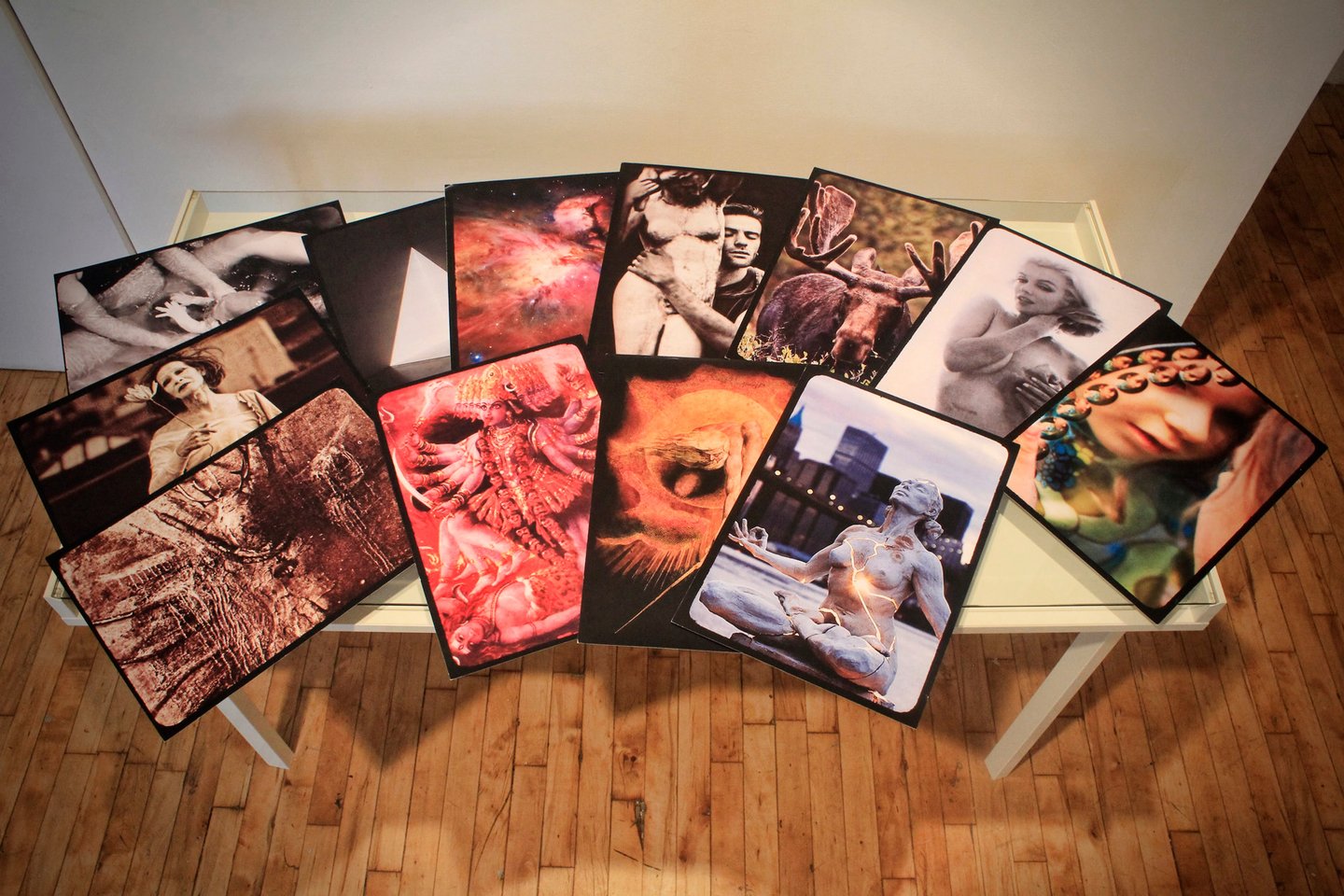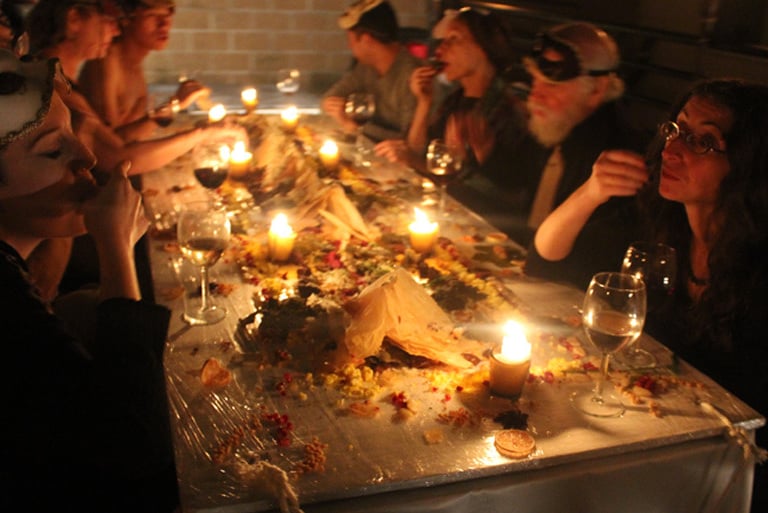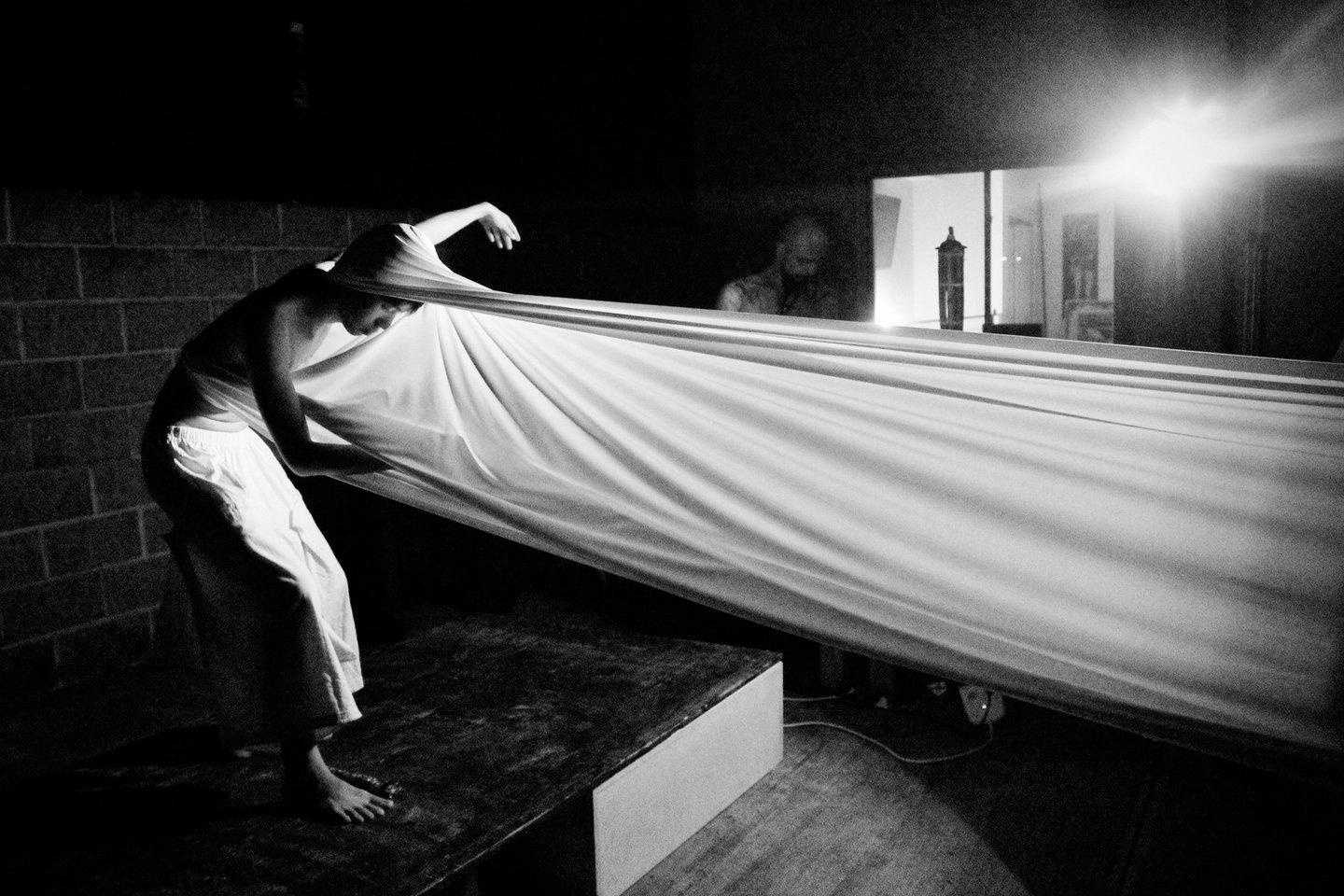Reality Research Center
Working group
Maria Oiva, Tuomas Laitinen, Jani-Petteri Olkkonen, Visa Knuuttila




Plato’s Symposium
Plato’s Symposium is a contemporary mystery play unfolding over eight consecutive days, where each participant embarks on a personal and philosophical journey toward the experience of absolute beauty. Created by Reality Research Center, the work reimagines Plato’s seminal dialogue not as a static philosophical text but as a living dramaturgy of transformation — intimate, participatory, and embodied.
At the heart of Symposium lies a question that animates both art and being: what does it mean to become beautiful? Inspired by Platonic philosophy and ecstatic Dionysian rites, the performance invites its participants — called protagonists — to move through a four-part initiation, accompanied by performers channeling four Greek gods: Aphrodite, Apollon, Dionysos, and Hermes.
An extensive and profound rite of passage.”
Erin Mee, director, scholar, professor
”A recurrent theme in our conversations of Plato’s Symposium has been the crisis of language,
the breakdown of logos, in the face of such a complex and transformative experience.
An inevitable futility seems to shade our every endeavor
to illuminate those who were not involved about our experience.”
Igor Rodriguez, scholar
Each act of the mystery play opens a new dimension of aesthetic inquiry:
LOGOS begins the journey with an image — one of twelve archetypes — chosen by the protagonist and contemplated through Socratic dialogue.
In MIMESIS, beauty takes shape as each protagonist builds a personal altar, an installation explored in silent presence and conversation.
ANAGNORISIS marks the turning point: an inward passage into one's private aesthetic realm, culminating in the planning of a unique ritual act.
Finally, in SYMPOSIUM, all protagonists come together in a shared celebration, performing their self-created rituals in a feast of beauty and becoming. Through this act, they ascend into a mythic pantheon of their own making.


Rather than offer a single narrative, Plato’s Symposium constructs a communal space for becoming — a theater of beauty as metamorphosis, where theory becomes praxis, and the self becomes divine.
Premiered in 2013 as part of Theorems, Proofs, Rebuttals, and Propositions: A Conference of Theoretical Theater in New York, Symposium is the first installment in Reality Research Center’s Platonic trilogy. It was followed by Plato’s Cave (Copenhagen, 2016), which sought truth, and Plato’s Republic (Helsinki, 2017), which investigated the good. Originally conceived as part of Utopian Reality (2012–2013), a research project by Reality Research Center. The project sought to develop utopian artistic practices capable of entering everyday life — not as escapism, but as proposals for real, lived transformation. Mysteries of Love — a series exploring ancient philosophy as a living source for contemporary embodied inquiry.
“”The knowing that comes from Plato’s Symposium is a performer’s knowledge, a knowing from inside. Because it has
no external referent, and no way toward abstraction, it eludes relativity.”
Esther Neff, curator of Theorems, Proofs, Rebuttals, and Propositions: A Conference of Theoretical Theater
“”First disrupting the division between fabricated scenic (modeling) reality and act-ual, daily reality by using food,
physical transformation (real action: piercing of a nipple), and embedding of the “play” in “real” time (the performance
took protagonist-participants through 5 days), RRC emphasizes processes for interpreting reality and empowers
individual selves to build private symbolic schemas.”
Esther Neff, curator of curator of Theorems, Proofs, Rebuttals, and Propositions: A Conference of Theoretical Theater
"It expanded the meaning of theatre. It expanded the meaning of ritual. It expanded the meaning of theory.”
Erin Mee, director, scholar, professor
“Got me menstruating.”
Yelena Gluzman, curator of Theorems, Proofs, Rebuttals, and Propositions: A Conference of Theoretical Theater
Theorems, Proofs, Rebuttals, and Propositions: A Conference of Theoretical Theater in New York, 2013